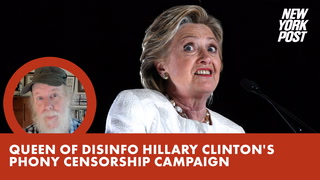In the ever-evolving landscape of American economic policy, the stakes are high as key figures weigh in on the future direction of the economy. Recently, U.S. Treasury Secretary Janet Yellen issued a stark warning regarding potential shifts in federal policy, emphasizing that such changes could significantly threaten the nation’s economic trajectory. Writing in a prominent publication on September 22, Yellen cautioned that “veering off course could jeopardize our economic trajectory,” a sentiment that resonates deeply in a time marked by volatility and uncertainty.
Yellen’s analysis highlights the precarious balance of current economic strategies, particularly the implications of proposed tax cuts for higher earners. She argued that such cuts could “explode the federal deficit,” a concern echoed by many economists who fear that unchecked fiscal policies could lead to long-term economic repercussions. Furthermore, she pointed out that repealing investments in key sectors—those she described as “the industries of the future”—could severely stunt growth. The importance of strategic, targeted international economic policies cannot be overstated either; Yellen warned that a lack of coherence in this area could not only raise costs for American citizens but also lead to global instability.
Central to Yellen’s argument is her advocacy for the federal government’s investments in green energy and technology. These initiatives, she noted, represent “cutting-edge industries” crucial for America’s economic resilience. The COVID-19 pandemic underscored the urgency of such investments, as the government implemented vaccination programs and navigated crises, including the energy shock resulting from geopolitical tensions, such as Russia’s invasion of Ukraine. Yellen highlighted that critical investments in infrastructure and manufacturing, particularly in clean energy and semiconductors, have played a pivotal role in “reversing the pandemic’s shock to our ability to produce goods and services” and ultimately “boosted the economy’s long-run potential output.”
While Yellen’s insights outline a cautious path forward, the political arena is heating up as the 2024 presidential election approaches. Former President Donald Trump, in a recent appearance at the Economic Club of New York, touted his vision for a “national economic renaissance.” His proposed strategies include slashing government regulations, increasing tariffs, and cutting corporate taxes—an approach that he claims would invigorate the economy. Notably, Trump also suggested establishing a government efficiency commission, led by Tesla CEO Elon Musk, to audit federal spending and recommend drastic reforms. This proposal, while ambitious, raises questions about the balance between efficiency and the potential erosion of vital public services.
In the midst of these discussions, Vice President Kamala Harris is preparing to address economic concerns in a speech that aims to resonate with the American populace. She plans to tackle pressing issues such as the high costs of homeownership and groceries, reflecting her understanding of the everyday challenges faced by many families. Harris, who has shifted her stance on several proposals since her 2020 campaign, seeks to position herself as a champion for middle-class Americans, drawing from her own upbringing.
As both Trump and Harris vie for public support, recent polling data reveals a closely contested landscape regarding economic trust. According to a survey conducted by the Associated Press–NORC Center for Public Affairs Research, Trump currently holds a slim lead, with 43 percent of registered voters expressing confidence in his economic stewardship compared to 41 percent for Harris. This slight edge indicates that neither candidate has definitively secured the public’s faith on this critical issue.
In conclusion, as the nation approaches a pivotal election, the dialogue surrounding economic policy will undoubtedly intensify. Yellen’s warnings serve as a clarion call for careful consideration of the implications of policy shifts, while the contrasting visions presented by Trump and Harris highlight the diverse perspectives on how best to navigate the complex economic landscape. Voters will need to weigh these options carefully, as the decisions made in the coming months will shape the future economic trajectory of the country.

